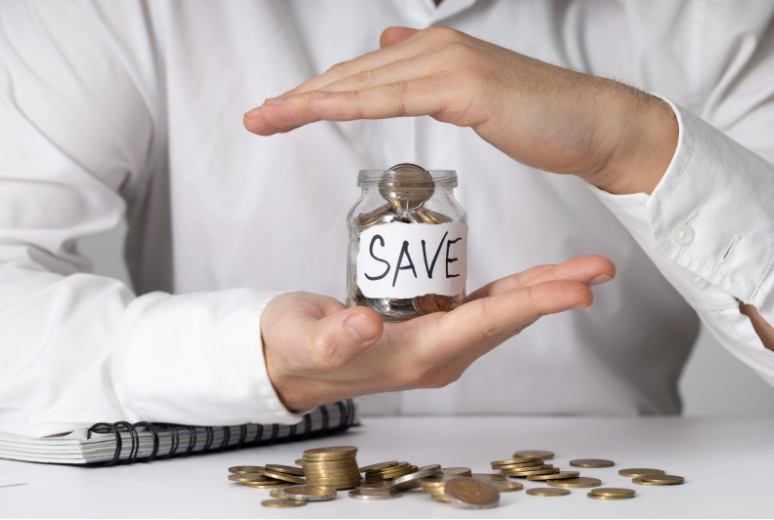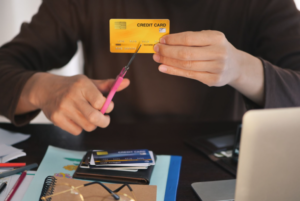
Reasons you Need an Emergency Fund
If the pandemic taught us anything, it’s that we must be prepared for anything. In the blink of an eye life can change and if you don’t have an emergency fund, you could find yourself in financial distress.
If you’d like to find ways to avoid personal bankruptcy or falling behind on your bills, you need an emergency fund. But these are not the only reasons. Here are X more reasons an emergency fund is right for everyone.
You’re Protected if you Lose your Job
Jobs aren’t forever and one issue can cause you to lose it, like what happened to many during the pandemic. Losing your job is stressful and if you don’t have money to cover your bills, it can make it even worse.
With an emergency fund, you can cover your bills and focus on finding a new job rather than stressing about how you’ll pay your bills. It also stops you from falling behind on your bills, adding even more to your stress.
If you have 3 – 6 months of saving for expenses, you can take your time finding the right job rather than jumping at the first job that is available so you can pay your bills.
You can Cover your Bills if you Become ill
Getting sick isn’t fun, but it’s even worse if you can’t work for a long period. If you don’t get compensation from your employer while you’re sick, it could be hard to cover your bills.
An emergency fund can give you peace of mind during this time, allowing you to focus on your health and not worry about your finances.
You Have Unexpected Health Expenses

If you fall ill or get injured, you could have doctor’s expenses you didn’t expect. Even though the Canadian healthcare system covers most things, they don’t cover everything. If you have expenses that aren’t covered and you don’t have money saved, it could hurt your budget and cause you to fall behind on your monthly bills.
You Have an Dental Emergency
Dental emergencies happen all the time and they are costly, if you don’t have coverage. While you might be able to get a payment arrangement with the dentist, it may cost you in interest, plus it can ruin your budget since you’ll have another monthly payment to add to your pile.
With an emergency fund you can cover dental expenses and handle whatever your dental health needs to keep you comfortable and healthy without financial strain.
Home Repairs
If you own a home, the maintenance and repair costs fall on you. On average, home maintenance costs 1% of the home’s value per year, but there are times it will cost much more.

If you have a sudden home emergency, it can put you over budget or put you into severe debt. Many people use credit to help them with unexpected repairs putting their credit cards to the max. An emergency fund can prevent you from getting into this situation.
Car Repairs
Just like your house, your car may need repairs too and they happen fast and usually at the worst times. Since you need your car to get from Point A to Point B daily, it’s important to have your car running well.
Whether your car completely breaks down or you are in a car accident and your car needs repairs, an emergency fund can help cover the costs and avoid the use of credit cards or not paying other debts to cover the cost.
How to Save an Emergency Fund
If you’re thinking ‘how will I ever save an emergency fund when I live paycheck to paycheck?’ you aren’t alone.
But there are ways.
-
Cut back on unnecessary expenses
Look at your budget and see where you can cut back. Do you spend money frivolously? If so, where? Figure out where you can cut back so you have more money free for an emergency fund.
-
Stop using credit cards
Credit cards are the number one reason people don’t have an emergency fund. If you use credit cards as an extension of your income, it’s hard to get ahead. Instead of charging what you can’t afford, wait to buy the items until you have the money and instead, use the money you’d pay to the credit cards to fund your emergency account.
-
Set a goal to save a certain amount each week
Even if your goal is to save $5 a week, be consistent about it. The more regularly you deposit money in your account, the more motivated you will be to keep it up, helping your fund grow.
-
Automate your savings
Set up automatic deposit in your savings account with your employer or set it up with your bank like TFSA (Tax Free Savings Account). Either way, you ensure that you save each week, every other week, or month, depending on the frequency you set up.
Where to Save an Emergency Fund
Where you save your emergency fund is just as important as how you do it. The key is to keep the funds separate from where you normally bank. Make it hard to access the funds so you don’t use them unless it’s a true emergency.
For example, open an online savings account that is separate from the bank you hold your checking account at or put the money in a TFSA (Tax Free Savings Account) and let it grow.
Just make sure the funds aren’t easily accessible.
Final Thoughts
If you don’t have an emergency fund and find yourself in over your head in debt, let the professionals at EmpireOne Credit help. Our credit counsellors will go over all options that would be available to you, helping you to get the most out of your finances. We help you learn how to use your money wisely and to get out of debt so it doesn’t feel so crushing. We will help you to free up your budget, you’ll have more money to put in your pocket, and emergency fund so you don’t end up in this situation again!






